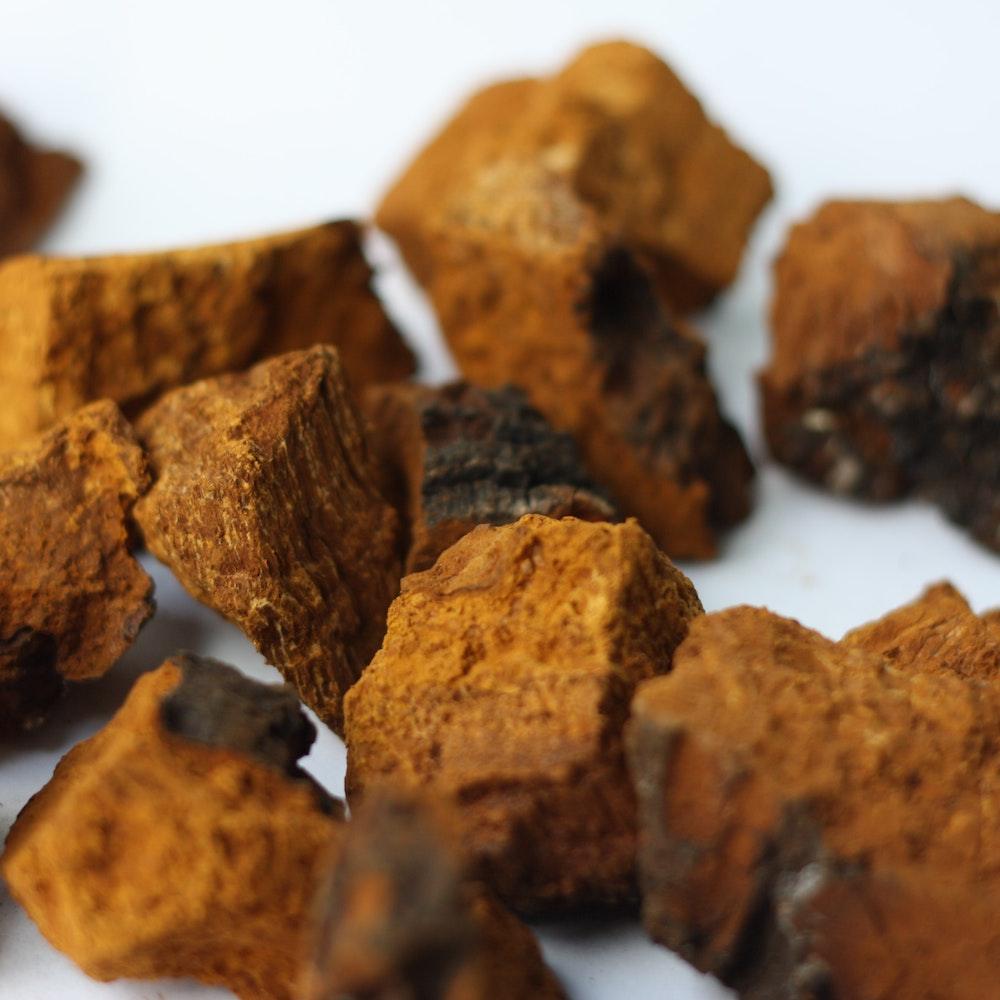The use of adaptogens has been around for thousands of years in traditional systems of medicine, such as Ayurveda, Traditional Chinese Medicine and Tibetan herbalism.
One of the earliest recorded adaptogens is Ginseng, which has been used in Traditional Chinese Medicine for over 2,000 years.
In the West we have been discovering the healing properties of adaptogens and medicinal mushrooms.
The Chaga mushroom has been used in Russia and parts of Europe for centuries as a folk remedy for various ailments.
In Russia it is traditionally used to support digestion, strengthen the immune system and to promote the health of the liver, respiratory tract and skin.
Today, adaptogens are gaining popularity in the West, with many people using them as natural remedies to help manage stress and improve overall health and wellness.
History of adaptogens in the west
In the West, adaptogens were first identified and studied in the 1940’s and 1950’s by Soviet scientists who were looking for ways to enhance the performance and resilience of their soldiers and athletes.
The term "adaptogen" was coined in the late 1940s by Russian scientist Nikolai Lazarev, who defined it as a substance that helps the body adapt to various stressors and increases its resistance to physical, chemical, and biological stress.
In the 1950s-1970s, further research was conducted on adaptogens in Russia.
Lazarev identified a number of herbs and plant extracts that he believed had adaptogenic properties, including Rhodiola rosea, eleuthero (Siberian ginseng) and Schisandra chinensis.
These adaptogens were found to have powerful properties, such as improving cognitive function, reducing fatigue and supporting immune function.
Israel Brekhman was a Russian scientist with a PhD in biochemistry who conducted extensive research on adaptogens, particularly on the adaptogenic properties of ginseng.
Brekhman's research began in the 1940s and continued until his death in 1994.
His work focused on the ability of adaptogens to improve the body's resistance to stress and disease.
He studied the effects of adaptogens on the immune system, the cardiovascular system, and the nervous system.
He also investigated the potential anti-cancer properties of adaptogens.
What's the definition of an adaptogen?
Brekhman and his colleagues defined adaptogens as natural plant compounds that:
- increase the body's ability to deal with internal and external stress.
- show stimulating effects after both single and long-term use, leading to increased work capacity and mental performance under stressful and tiring conditions.
- normalize the functions of the body.
- are completely safe and have no negative side effects.
Brekhman identified the unique chemical compounds found in Ginseng that give it its adaptogenic properties known as ginsenosides, which he found to be responsible for many of the health benefits associated with Ginseng use.
One of his most important contributions to adaptogen research was his development of a standardized method for measuring the adaptogenic activity of herbs.
This method, known as the "adaptogenic index," allowed researchers to compare the effectiveness of different adaptogenic herbs and to identify the most potent ones.
Brekhman's work on adaptogens has had a significant impact on the field of natural medicine, and his findings have contributed to the growing popularity of adaptogenic herbs around the world.
Many of the adaptogenic herbs that Brekhman studied, including Ginseng, Eleuthero, Rhodiola rosea and Schisandra are now widely used for their ability to reduce stress and promote health.
Lazarev and Brekhman are both recognized as pioneers in the study of adaptogens, and their work has had a lasting impact on the field of natural medicine.
Their research has helped to establish the scientific basis for the use of adaptogenic herbs in promoting health and wellness.
